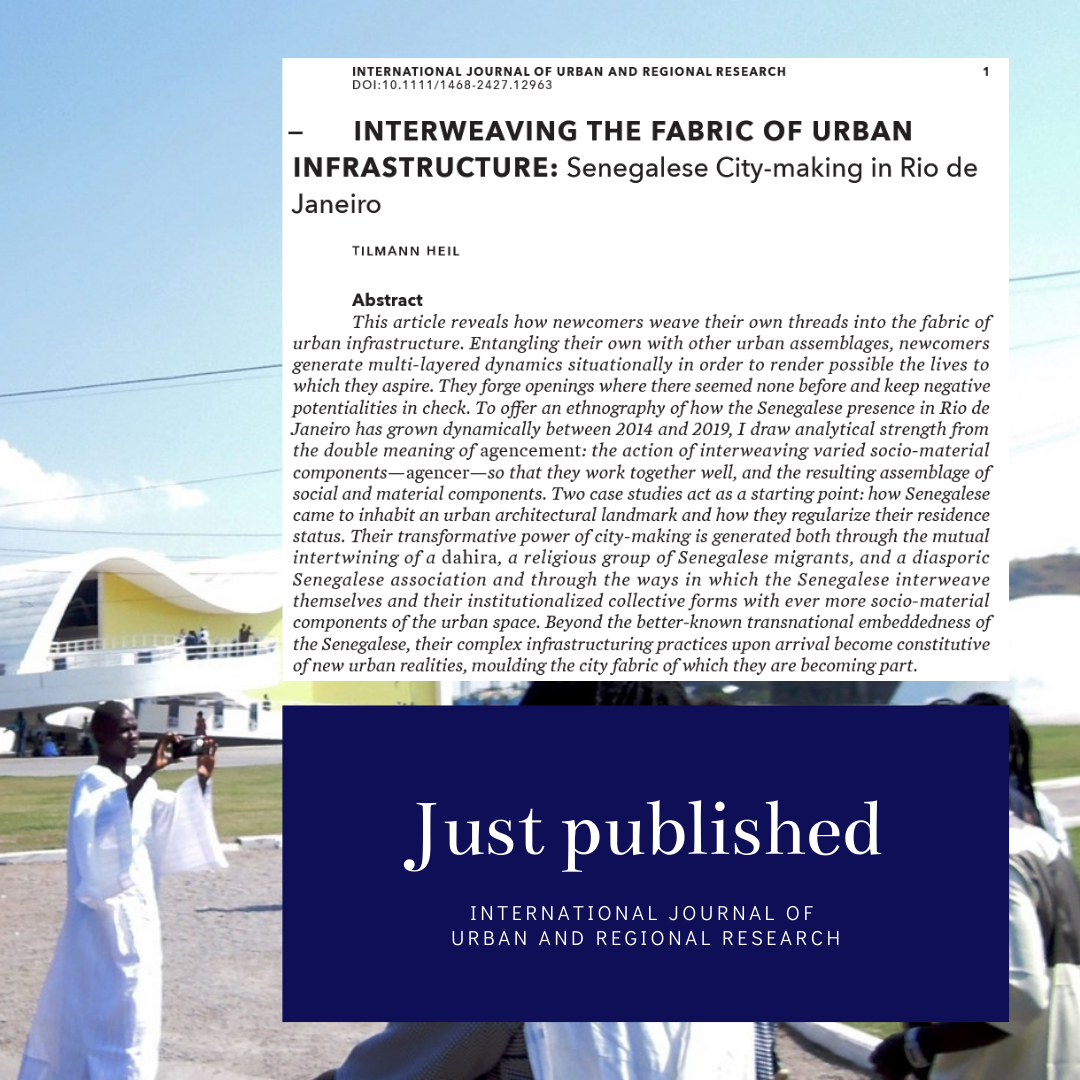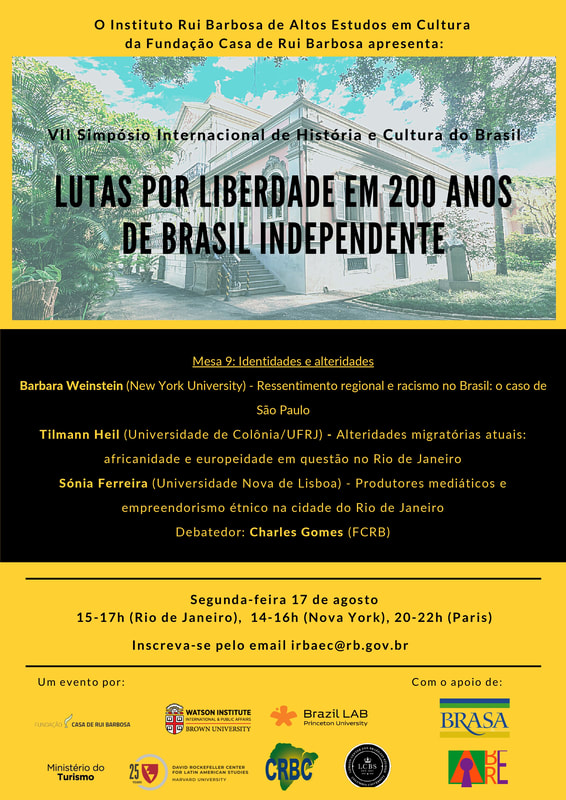|
It's a long journey that comes to an end as an #openaccess article in IJURR (doi.org/10.1111/1468-2427.12963).
I was fascinated how newcomers make the city according to their tastes, needs, visions, and projects weaving threads together that have not been connected before. I focus on the action of interweaving - or agencer - in which they connect themselves and their collective forms of organization to religious, social, political and material elements of urban space. First and foremost, I thank my interlocutors with whom I learned about the multiple Rios that emerge from complex lives lived in the multiple tensions in place. The article sheds light onto the process of arrival that is at the basis of my project Valued Difference that I have developed over the last years in Rio de Janeiro, on which you can read here. I will be presenting at the 9th roundtable on "Identities and Alterities" of this international symposium that honors the struggles for freedom in 200 years of an independent Brazil. I will discuss some of the current alterities in Brazli that arise from the recent arrival of West Africans and Southern Europeans in the city of Rio de Janeiro. I will discuss notions of Africanness and Europeanness in my interlocutors' narratives and experiences in Rio de Janeiro and how this discussion facilitates an understanding of some of the complexities of historically grown, currently active social hierarchies and racism in the city. Missed it? Please go and listen to our debate here!
We invite you to submit a proposal to our panel
Application deadline extended: 1st of June 2020 Abstract: Cities are cross-roads where the numerous effects of neoliberal capitalism and (post)modern biopolitics converge with scores of counter-movements challenging them and proposing alternatives. In this context we ask how urban dwellers and traversers who strive for change of the terms of urban life become involved in the political. This panel aims to understand such emerging urban political subjectivities. We invite papers that observe such changes either regarding a specific subset of urban populations (e.g. activists, migrants, believers, students, homeless), specific causes (e.g. mobility, housing, security), or in overall urban governance schemes (e.g. private-public partnerships, participatory processes). The panel is particularly interested in innovative takes on the political that study the entanglements of materialities, people, and acts. We invite critical engagements with the - in our view - problematic conceptual distinctions between the political, the ethical, and the emotional. A key concern of ours is: How do non-hegemonic cosmovisions shape urban political subjectivities and how do their proponents re-define both the content and form of the political. Not only urban assemblages are plural, but also their styles and forms of addressing the political, fluently re-entangling materialities, actors, and acts. This fluidity challenges simple concepts of the political and signals urban becoming in multiplicity. Urban political subjectivities hence may go through rapid changes. Through increased analytical ethnographic attention into such emerging configurations and their synergies, tensions, and contradictions, the panel aims to make a valuable contribution to understanding and shaping more sustainable and resilient urban futures. Conference: IUAES Congress 2020 Coming of Age on Earth: Legacies and Next Generation Anthropology When: 07-11 October 2020 Where: Convention Centre, Šibenik, Croatia Conveners: Tilmann Heil (KU Leuven), Raúl Acosta (LMU Munich) Guidelines: https://iuaes2020.conventuscredo.hr/abstract-submission-guidelines/ Submission system: https://iuaes2020.conventuscredo.hr/abstract-submission/ We are looking forward to receiving your abstracts. in International Journal of Urban and Regional Research (IJURR)
Early View, pdf Abstract This article reveals how newcomers weave their own threads into the fabric of urban infrastructure. Entangling their own with other urban assemblages, newcomers generate multi‐layered dynamics situationally in order to render possible the lives to which they aspire. They forge openings where there seemed none before and keep negative potentialities in check. To offer an ethnography of how the Senegalese presence in Rio de Janeiro has grown dynamically between 2014 and 2019, I draw analytical strength from the double meaning of agencement: the action of interweaving varied socio‐material components--agencer--so that they work together well, and the resulting assemblage of social and material components. Two case studies act as a starting point: how Senegalese came to inhabit an urban architectural landmark and how they regularize their residence status. Their transformative power of city‐making is generated both through the mutual intertwining of a dahira, a religious group of Senegalese migrants, and a diasporic Senegalese association and through the ways in which the Senegalese interweave themselves and their institutionalized collective forms with ever more socio‐material components of the urban space. Beyond the better‐known transnational embeddedness of the Senegalese, their complex infrastructuring practices upon arrival become constitutive of new urban realities, moulding the city fabric of which they are becoming part. |


 RSS Feed
RSS Feed